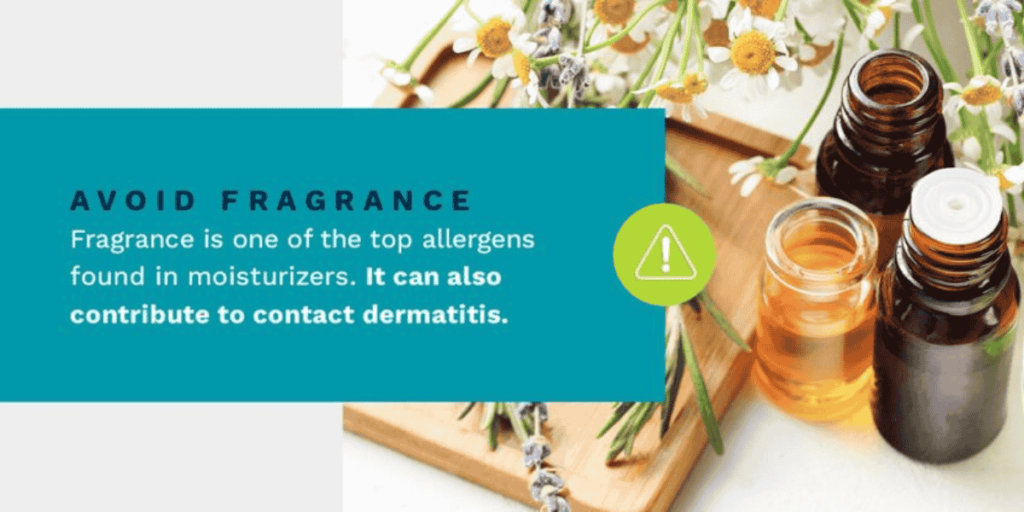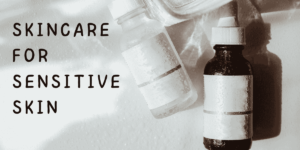1.What is Sensitive Skin?
Sensitive skin is more reactive than other skin types ,so it needs a special type of skincare. It responds to triggers that other skin types might tolerate just fine, whether it’s an environmental change, a new product, or even just stress. Dermatologists define sensitive skin as skin that becomes easily inflamed and irritated, and it can present in any skin type, from oily to dry.
Many people with sensitive skin experience issues such as:
- Redness and flushing
- Itching and burning sensations
- Dryness and flakiness
- Visible veins or capillaries
Sensitive skin also tends to react to products with harsh ingredients, and even some natural products can be problematic. The key to caring for sensitive skin is to focus on calming and soothing it, rather than aiming for dramatic changes.
2.Signs You Have Sensitive Skin
Not all sensitive skin looks the same. Some people might experience constant redness and dryness, while others may only react to specific products or environments. Here are a few ways to tell if your skin is sensitive:
- Persistent Redness: Your skin tends to flush easily or appears redder after using skincare products or after exposure to heat.
- Burning or Stinging Sensation: Common ingredients like fragrances or alcohol might cause a burning or stinging feeling.
- Tightness: Sensitive skin often feels tight, particularly after cleansing.
- Frequent Breakouts or Rashes: You may notice that certain products cause small red bumps or a rash.
- If you’re seeing these symptoms regularly, it’s a good idea to avoid heavy-duty treatments and prioritize skincare for sensitive skin with calming, simple ingredients.

3.Common Triggers for Sensitive Skin
Sensitive skin can be influenced by various factors, and understanding your specific triggers is key. Here are a few of the most common ones:
- Climate and Weather Changes: Extremes in weather, like a hot, humid day or a chilly, dry winter, can sap moisture from the skin or overburden it with sweat and oil. Sensitive skin often struggles to adapt quickly, leading to redness or flakiness.
- Harsh Skincare Products: Alcohol-based toners, abrasive exfoliants, and high-strength acids are too much for sensitive skin. Even some popular “natural” ingredients, like certain essential oils, can trigger sensitivity.
- Diet and Lifestyle: Spicy foods, alcohol, and caffeine are known to trigger sensitivity in some people. Smoking is also particularly bad for sensitive skin, as it impairs skin’s ability to repair itself, which can make reactions more severe.
- Environmental Pollution: Pollutants and free radicals in the environment can weaken the skin’s protective barrier. Sensitive skin often shows signs of pollution damage, such as dryness, breakouts, and a dull complexion.
Identifying your own triggers is crucial for managing sensitive skin. Keeping a skincare journal can help you track which products or environmental factors may be causing flare-ups.
4.Choosing the Right Ingredients for Sensitive Skin
Some ingredients are particularly soothing for sensitive skin, helping to calm inflammation and protect the skin barrier. Here’s a list of some of the best:
- Aloe Vera: Known for its cooling properties, aloe vera soothes irritation and provides hydration without clogging pores.
- Chamomile Extract: A natural anti-inflammatory, chamomile helps to reduce redness and irritation. Chamomile tea or extract in a toner can be great for sensitive skin.
- Hyaluronic Acid: A gentle humectant that draws moisture into the skin, hyaluronic acid is perfect for sensitive skin that’s prone to dryness. Unlike many hydrating agents, it doesn’t clog pores or cause breakouts.
- Squalane: Derived from olive or sugarcane, squalane is highly compatible with skin’s natural oils, which means it hydrates without causing irritation. It’s ideal for people with sensitive, combination skin.
- Ceramides: These are lipids naturally found in the skin barrier, which can help reinforce the skin’s defenses. Ceramide-rich moisturizers are excellent for locking in moisture.
- Colloidal Oatmeal: Commonly used to soothe eczema, colloidal oatmeal helps relieve itchiness, making it a great ingredient for sensitive skin.

5.Ingredients to Avoid
To keep sensitive skin calm, it’s just as important to know what to avoid as it is to know what to use. Here are a few common offenders:
- Fragrances: Both synthetic and natural fragrances can be irritating. If you have sensitive skin, look for fragrance-free options.
- Alcohol (denatured): Alcohol is often used in toners to create a drying effect, but it can be too harsh for sensitive skin.
- Parabens and Sulfates: These common preservatives and foaming agents can disrupt the skin’s natural balance, leading to irritation.
- Chemical Sunscreens: ingredients like oxybenzone and avobenzone may protect against the sun but can irritate sensitive skin. Mineral-based sunscreens (with zinc oxide or titanium dioxide) are generally better tolerated.

6.Step-by-Step Skincare for Sensitive Skin
Building a routine for sensitive skin requires a gentle approach. Here’s a step-by-step guide to setting up a soothing, effective regimen
- Gentle Cleanser: Start with a non-foaming, fragrance-free cleanser to remove dirt without stripping natural oils. Look for creamy textures rather than gels.
- Toner (Optional): Not all sensitive skin needs toner, but if you like the extra hydration, choose a toner with calming ingredients like rose water or chamomile. Always avoid alcohol-based toners.
- Hydrating Serum: Lightweight serums with hyaluronic acid, squalane, or niacinamide are perfect for locking in moisture without overwhelming the skin.
- Moisturizer: Sensitive skin needs moisture to maintain its protective barrier. Opt for a simple, fragrance-free moisturizer with ceramides or colloidal oatmeal.
- Sunscreen: Mineral sunscreens with zinc oxide or titanium dioxide provide broad-spectrum protection and are less likely to irritate sensitive skin.
- Night Cream (Optional): A gentle night cream with extra moisture or soothing ingredients can help repair the skin overnight.
7.Essential Tips for Managing Sensitive Skin
Beyond products, some simple lifestyle adjustments can make a big difference in managing sensitive skin:
- Limit Sun Exposure: Sun damage is particularly tough on sensitive skin. Wear sunscreen daily, and consider wearing hats or staying in the shade when possible.
- Use Lukewarm Water: Hot water can strip moisture and exacerbate redness. Use lukewarm water for cleansing and showers.
- Avoid Over-Exfoliating: While exfoliation can be beneficial, sensitive skin doesn’t tolerate it as well. Limit exfoliation to once a week with a mild enzyme exfoliator.
- Stay Hydrated: Drinking plenty of water keeps the skin hydrated from the inside out, which can prevent dryness and reduce redness.

8.Product Recommendations for Sensitive Skin
- Here are some products that are loved by those with sensitive skin:
- Cleansers: CeraVe Hydrating Cleanser, metafil Cleanser
- Moisturizers: First Aid Beauty Ultra Repair Cream, La Roche-Posay Toleriane Double Repair Moisturizer
- Serums: The Ordinary Hyaluronic Acid 2% + B5, Paula’s Choice Calm Repairing Serum
- Sunscreens: EltaMD UV Clear Broad-Spectrum SPF 46, Supergoop! Zincscreen 100% Mineral Lotion
Each of these products is formulated without fragrances or harsh chemicals, making them safe options for sensitive skin.
9.Creating a Skincare Routine for Sensitive Skin
Creating a skincare routine for sensitive skin requires a focus on mild, moisturizing, and protecting products. Here’s a step-by-step method to developing a productive routine:
a)Morning Routine
1. Use a mild, sulfate-free cleanser. Look for cream or gel-based cleansers designed for sensitive skin.
2. Toner (optional): Select a toner with calming components, such as chamomile or rose water. Avoid alcohol-based toners, as they can be drying.
3. Serum: Use a moisturizing serum with hyaluronic acid or calming ingredients like niacinamide.
4. Apply a mild, fragrance-free moisturizer to lock in hydration. If you live in a dry climate, consider using a ceramide-rich moisturizer to enhance your skin’s barrier.
5.Sunscreen: Use a mineral-based sunscreen with zinc oxide or titanium dioxide. Compared to chemical sunscreens, these components are less likely to trigger responses.
b)Evening Routine
1. Repeat with a gentle cleanser to remove grime and makeup.
2. Consider using a relaxing treatment, like colloidal oatmeal serum or aloe vera gel, if your skin tolerates it.
3. Use a thicker moisturizer at night, especially for dry skin.
c) Weekly Routine
Gently exfoliate once a week. Exfoliation is not well tolerated by sensitive skin, so use a gentle enzyme exfoliator or a low-concentration lactic acid solution.

10.Lifestyle Tips for Sensitive Skin
Taking care of sensitive skin requires more than just the appropriate products. Here are some lifestyle practices that can help your skin:
a.Stay hydrated
Drinking water is crucial for overall health, especially the skin. Aim to drink at least eight glasses of water per day, as hydration is essential for preserving skin suppleness and overall health.
b.Avoid hot showers
Hot water removes the skin’s natural oils, making it more susceptible to dryness and irritation. Use lukewarm water instead, and try to keep your shower length to 10-15 minutes.
b.Manage stress
Stress can cause skin irritation and other problems. To keep your stress levels under control, consider introducing stress-relieving hobbies such as meditation, journaling, or exercise into your daily routine.
d.Get enough sleep
Getting enough sleep is essential because skin repairs itself while you sleep. Get 7-8 hours of sleep each night to help your skin rejuvenate and maintain its natural barrier.
e.Select breathable fabrics.
Sensitive skin might be irritated by synthetic fibers. Choose natural, breathable materials such as cotton, particularly for pillowcases that come into direct touch with your face.
11.FAQs About Skincare for Sensitive Skin
Q: How do I know if my skin is sensitive?
A: Sensitive skin usually shows signs like redness, tightness, stinging, or itching. You may also notice your skin reacts negatively to many common skincare products or environmental factors.
Q: Can sensitive skin benefit from anti-aging products?
A: Yes, but choose products with gentle ingredients like peptides or niacinamide rather than harsh retinoids. Always patch test first and start with a lower concentration.
Q: How often should I exfoliate if I have sensitive skin?
A: Sensitive skin typically only needs exfoliation once a week. Avoid scrubs, and choose a gentle enzyme-based or lactic acid exfoliator.


